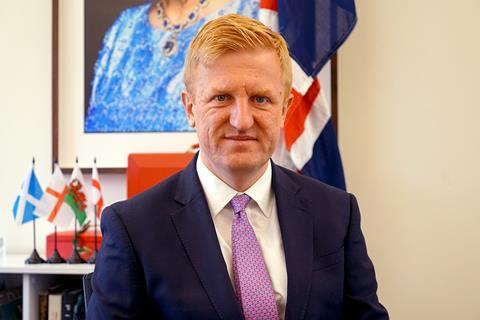What does the 10,000 word document say about the government’s thinking?

A number of key talking points have emerged following the publication of the 10,000-word DCMS consultation on the privatisation of Channel 4.
The government’s ‘preferred option’ is for C4 to be sold to a private owner and these are the most important take-aways:
Publisher-broadcaster model under threat
The government’s ambition to do away with C4’s publisher-broadcaster model is clear. It believes the model ‘restricts’ C4’s ability to evolve by forcing it to remain reliant on ‘cyclical’ advertising revenues.
The ability of the other commercially-funded PSBs to diversify was noted including ITV’s performance in 2019 – when non-advertising revenue accounted for £2.1bn of its £3.3bn total revenue. This was set against C4’s ambition to achieve 10% of total revenue from non-advertising revenue by 2025.
Under the government’s proposals, C4 could generate revenue from international tape and format sales, and the DCMS may have had ITV Love Island bottles in mind when it made the slightly unusual suggestion that C4 could benefit from “greater use of tie-in merchandising and digital products such as games”.
The document recognised the “implications” of allowing C4 to produce its own shows on third-party suppliers and appears to suggest that other PSBs may have their indie quotas raised in order to offset the impact of the changes.
The government noted that all of the PSBs are currently required to ensure that at least 25% of their shows are commissioned from indies and indicated this floor could be “enhanced…to mitigate the impact” of opening up in-house production at C4.
C4 spent £492m with suppliers in 2019, accounting for around 15% of the production sector’s £3.3bn global revenue. On a domestic basis, C4 accounted for 25% of indie revenues, though that figure is not included in the consultation.
Keep on levelling up
C4’s ambition to help the country ‘level up’ was referenced throughout its recent annual results by Alex Mahon, Ian Katz and Charles Gurassa and is a similarly key theme in the consultation, which suggests the government may want C4’s N&R commitments retained by any purchaser.
The document indicates that any future owner may have to commit to retaining its National Headquarters in Leeds – although no mention was made of its bases in Bristol and Glasgow.
More on Channel 4 sale
John McVay: MPs must explain rationale behind C4 sale plans
Related requirements around its out-of-London spend could also be baked into any deal.
“If it is desirable, there is an opportunity to continue (or even enhance) requirements for C4’s spending to be made across the whole of the UK and for the provision of content which is representative of communities across the UK,” it said.
The document noted that C4 has gone above and beyond its government-imposed quota of spending 35% of its budget outside the M25 and is on track to hit its voluntary target of 50% by 2023, worth up to £250m and supporting some 300 jobs in the nations and regions.
Remit 2.0
The government revealed that it considers C4’s requirement to provide content which is distinct to the BBC and ITV no longer reflects the broadcasting landscape.
“Consumers now have more choice than ever, driving competitive tension across the market,” it said.
The document suggests the government is committed to C4 retaining a strong PSB remit in the future, whatever its ownership status, but does not offer clear guidance on what that means, beyond the idea that it should be “modernised”.
In one breath it acknowledges the “value delivered to society” by C4’s obligations to serve young and diverse audiences, but then suggests that retaining such obligations could impact its long terms sustainability.
While C4 News has emerged as a lightning rod in the debate over privatisation, its future appears to be safe. The government flagged the 208 hours per year of peak time news the channel must air, well ahead of C5’s 120 hour requirement, and signalled a commitment to maintaining the status quo.
“The government is currently of the view that C4’s existing obligations relating to a high provision of news and current affairs content, should be broadly retained in any potential reform,” it said.
Capital benefits
Culture secretary John Whittingdale has repeatedly suggested C4 needs greater access to capital to thrive, and the consultation provided some further insight into how it considers this could be put to use.
The ability to invest in new technology and programming underpin the proposals.
The consultation sets out Netflix and Amazon’s £15m per hour drama budgets, against the circa-£2m tariffs of domestic players and predicted that the gap will only widen. “Third party ownership with the improved access to capital it would bring could allow Channel 4 to innovate and adapt to stay ahead,” it said.
If you would like to join Broadcast’s anti-privatisation campaign email not4sale@broadcastnow.co.uk indicating whether you are joining in a personal capacity or signing up your business, to enable Broadcast to highlight each area when publishing the results






























No comments yet